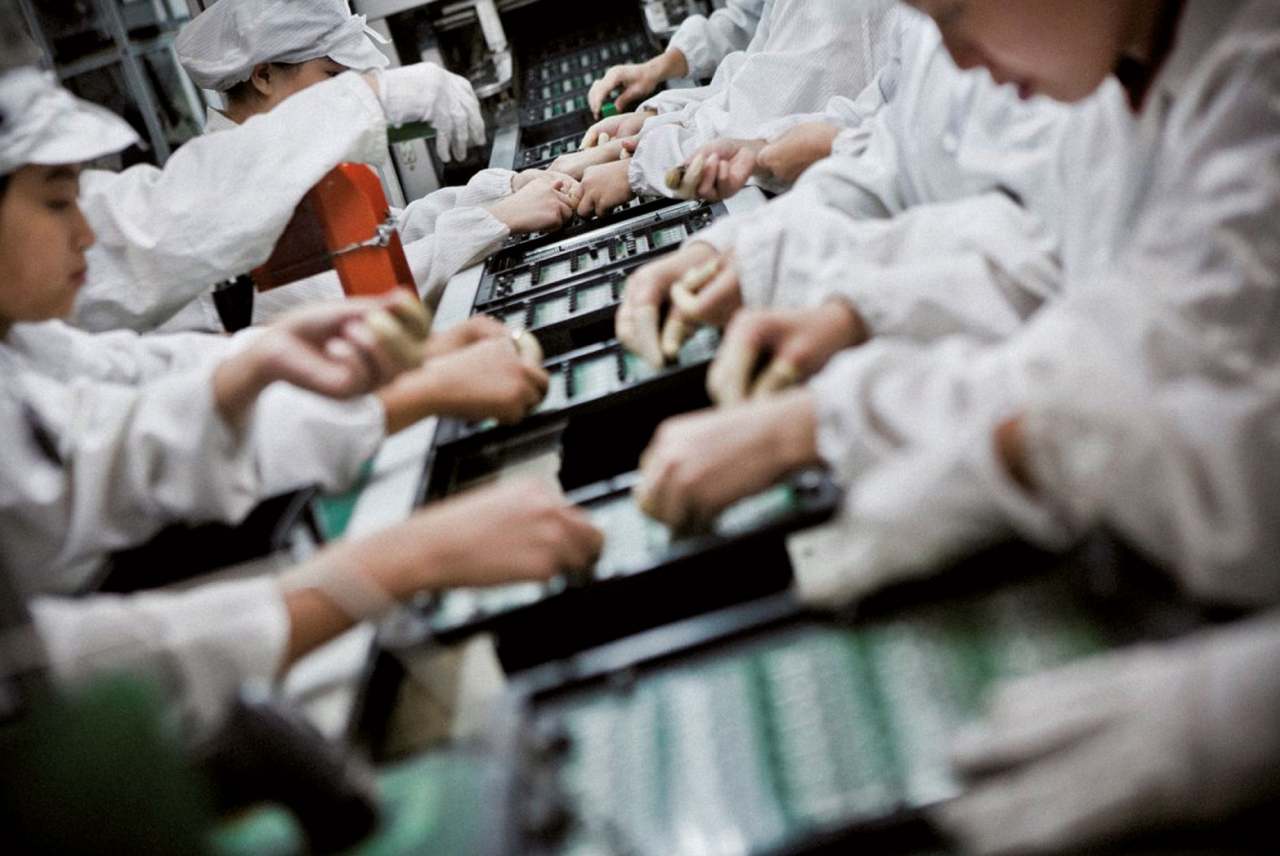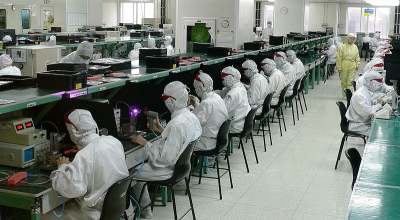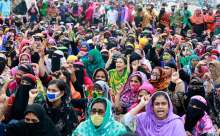Uyghur forced labour
Starting from about 2014, the Chinese government has arbitrarily detained as many as 1.8 million Uyghurs, a Muslim ethnic minority, in internment camps and prisons in the Xinjiang Uyghur Autonomous Region of China. At the camps, Uyghurs are forced to go through ideological and behavioural “reeducation”, and sometimes even worse things, such as forced sterilisation.
In a 2022 report, a UN expert on contemporary forms of slavery said it was “reasonable to conclude” that forced labour was taking place in China’s far-western region.
However, the Chinese government claims that they are only giving vocational training to the Uyghurs. Once ‘graduated’ from the camps, people are indeed sent to do labour. In some cases this is forced labour.
Research shows that there is widespread use of Uyghur forced labour within the ICT industry. In the factories, Uyghurs are often paid – if at all – a fraction of that of their Han Chinese counterparts. Various human rights groups have been calling for an end to this type of modern slavery.
Action to curb Uyghur exploitation
The Australian Strategic Policy Institute has identified 82 foreign and Chinese companies potentially benefiting from the use of Uyghur workers. These include Acer, Apple, ASUS, Dell, Google, HP, HTC, Huawei, Lenovo, LG, Microsoft, Nokia, Oppo, Samsung, Sony, Xiaomi, and ZTE. All these companies lost half a mark in our Human Rights category.
In spite of lobbying efforts from corporate giants like Apple, the Uyghur Forced Labor Prevention Act went into effect in the United States in June 2022. The act prohibits the importation of any goods produced in the Uyghur Region.
But while the regulation will hopefully make a difference to supply chains ending in the US, it won’t affect supply chains ending in the rest of the world.
The Coalition to End Forced Labour in the Uyghur Region has been calling on the following companies to commit to a single global standard: Apple, Dell, Google, HP, Microsoft, Samsung and Sony.
However, at the time of writing, none of the companies’ Modern Slavery Statements as much as mentioned Uyghurs. Sony said that it would consider ceasing business with partners found to be using forced labour while Apple stated that it “found no evidence of forced labor anywhere we operate”.
Our article Should we boycott 'Made in China'? has more detail about forced labour and Uyghurs and the complexities of boycotting China or products made in China.







